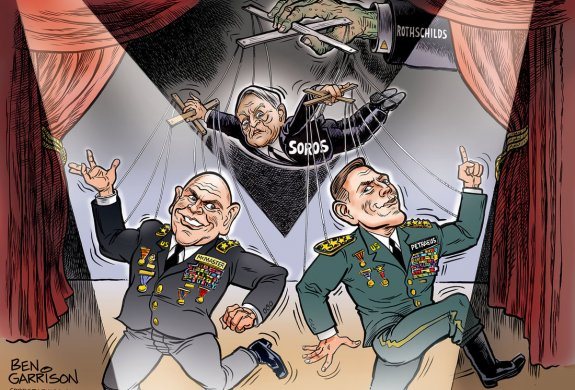Asking the wrong questions about Trump and fascism

This Vox article surveying a bunch of academics regarding the question of whether Donald Trump is a fascist hasn’t aged very well (it’s 27 days old).
For example, history professor Stanley Payne:
This inquiry made a little sense four years ago, when Trump was still an unknown quantity, but now he has a record. Well — that’s pretty thin gruel. Nothing much to work with here. The Democrats won the first election under Trump [the 2018 midterms], and I’m not aware of anything negative happening. Straining at gnats doesn’t really get us anywhere. Mostly these are just silly public remarks.
Whoopsies.
Roger Griffin is a little more circumspect, but still downplays the idea that Donald Trump has any kind of real anti-democratic agenda:
His relationship to democracy, I would really insist, is the key to answering whether he’s a fascist or not. Even in four years of incoherent and inconsistent tweets, he’s never actually done a Putin and tried to make himself a permanent president, let alone suggest any coherent plan for overthrowing the constitutional system. And I don’t even think that’s in his mind. He is an exploiter, he’s a freeloader. He’s a wheeler and dealer. And that is not the same as an ideologue.
This isn’t my area of expertise, but the claim that somebody isn’t a fascist, or an aspiring fascist, or a nascent fascist, or fascist-adjacent etc. etc. because he doesn’t have a coherent ideological program seems odd, given that fascism itself as a historical phenomenon doesn’t normally manifest itself as a coherent ideological program, but rather as a set of more or less shared ideological tendencies, one of which is to positively celebrate ideological incoherence.
I think Jason Stanley has the most sensible take on all this:
When I think about fascism, I think about it as applied to different things. There’s a fascist regime. We do not have a fascist regime. Then there’s the question of, “Is Trumpism a fascist social and political movement?” I think you could call legitimately call Trumpism a fascist social and political movement — which is not to say that Trump is a fascist. Trumpism involves a cult of the leader, and Trump embodies that. I certainly think he’s using fascist political tactics. I think there’s no question about that. He is calling for national restoration in the face of humiliations brought on by immigrants, liberals, liberal minorities, and leftists. He’s certainly playing the fascist playbook.
My definition is of fascist politics, not of a fascist regime. I think most of the other [fascism scholars] are just talking about something else. They’re talking about regimes. . .
If you’re only worried about fascist regimes, you’re never going to catch fascist social and political movements. The goal is to catch fascist social and political movements, and fascist ideology, before it becomes a regime.
Exactly. Asking “is Donald Trump really a fascist?” is the wrong question, because Donald Trump isn’t “really” anything but a bullshitter, so asking if he’s sincerely committed to any particular ideology or political program is a category mistake.
Trump is a grifting demagogue, who has figured out in his feral way that the Republican party was ripe for being taken over by someone presenting himself as an authoritarian ethno-nationalist strongman celebrity cult figure — a kind of reality TV caudillo. (Again, asking whether he “believes” in ethno-nationalism is the wrong question — what he believes is that authoritarian ethno-nationalism plays with the marks. I will concede that he does seem to have a genuine — to the extent that word can ever mean anything in regard to Trump — affection for authoritarianism and white supremacy, but this seems purely emotional and reflexive rather than some sort of ideological commitment, because Trump doesn’t and indeed can’t do ideology: he’s too lazy and stupid for that).
But the fact remains that anybody who is promoting an authoritarian ethno-nationalist xenophobic anti-intellectual strongman cult, based on restoring a glorious mythical national greatness, that must now be recaptured because it has been sabotaged by both external and internal enemies, is at a minimum playing around with a Fascism 101 Starter Kit.
Trump is currently trying, with dead seriousness, to nullify the results of a presidential election he unambiguously lost. Even more strikingly, the entire Republican party is either doing absolutely nothing to discourage his efforts, or in many cases is actively aiding them.
As Stanley points out, arguing that we don’t really have to worry about Trump being a real fascist and Trumpism being a fascist movement because America isn’t currently a one-party state is jejune. Trump wants to turn America into a one-party state for the purpose of presidential elections. That’s what it means to try to reverse the actual results of a presidential election, for no other reason than that your party lost. And the Republican party is supporting this effort.
Hindsight is 20/20, but how much of a prophet would you have to have been 27 days ago to predict that this is exactly what was going to happen, given that Trumpism is what it is, and has completely taken over the Republican party? That this effort is likely to fail this time around is irrelevant to the question of whether Trumpism is a fascist movement: Historically, most successful fascist movements endured lots of initial failures before they prevailed.
Trumpism is a fascist movement, Trumpism has taken over the Republican party completely, and the Republican party is trying to nullify the presidential election it just lost, so you do the math regarding whether that all adds up to some sort of nascent or not so nascent fascist plot against America.
. . .


